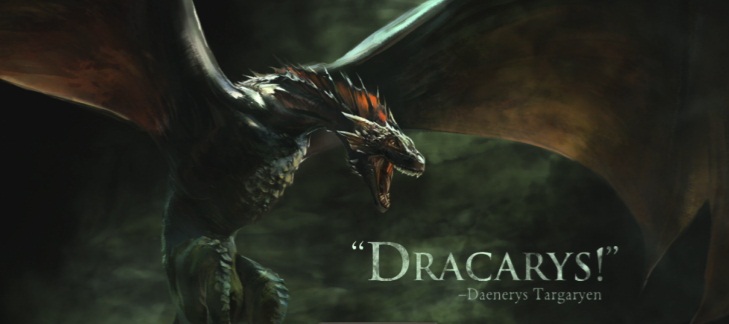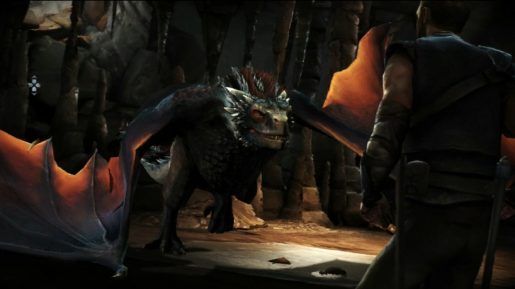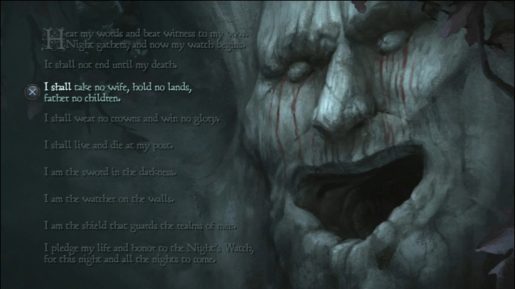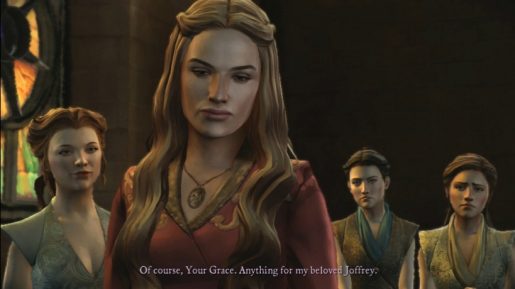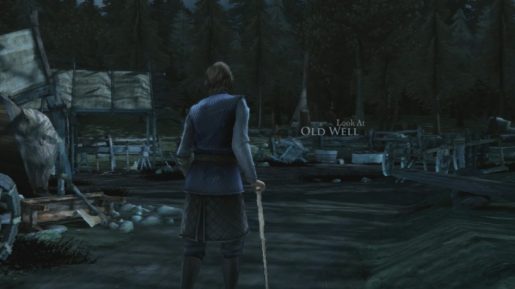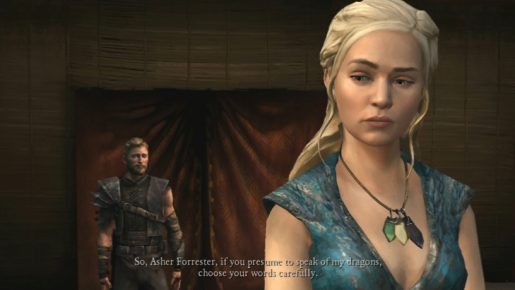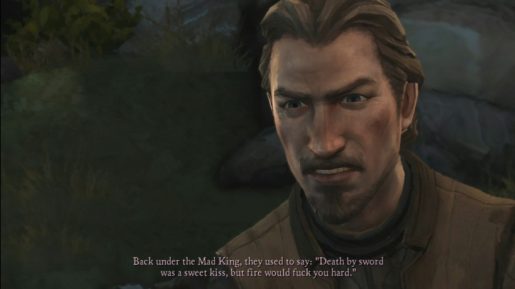Telltale’s Game of Thrones series has reached the halfway point with the release of the third episode, The Sword in the Darkness. With the children of House Forrester still scattered to the four winds of Westeros, their paths continue to diverge and unfold in unpredicted ways. Has The Sword in the Darkness captured the charm of the previous episodes, or is this one still in the dark?
Episode Three opens with Asher Forrester continuing his path to raise up an army of sellswords to return back to Ironrath with his uncle Malcom and Beshka. It’s during this episode that we’re greeted with the first glimpse of dragons, namely a violent black one that seems to not be under Daenerys’ control. While simultaneously on the run from the Lost Legion, Ashes and company find themselves having to fend off two attacks at once. One of only two QTE battles take part during this section, which feels like Telltale is recognizing the poor reception to their combat and making the right adjustments. This fight doesn’t go on for too long and there’s a strong choice towards the end of the encounter where Asher must choose between protecting one of his two allies at the risk of letting the other take the brunt of the dragon’s flame.
Gared Tuttle’s segments of the story focus on him officially taking his vows and becoming a ranger of the Nights Watch, much like that of his friend and mentor Jon Snow. His segments are fairly straightforward and depending upon his interactions with his two fellow men of the Nights Watch, Cotter and Finn, lend themselves to the few intentional comedic moments of the chapter. The revelations of the North Grove begin to reveal themselves during this chapter and Gared finds himself having a moral dilemma between staying true to the Nights Watch, or to pursue the wishes of his former Lord in seeking such a mythical place out. Gared’s segments have a fair bit of dynamic gameplay to them, swapping between the briefest of walking sequences, the only puzzle to solve in the chapter, and the second of the two fights this episode, easily standing out as one of the best in the season thus far with a satisfying clincher to look forward to.
The segments that change the most dynamically based upon previous chapters are those featuring Mira, still handmaiden to the soon-to-be married Lady Margaery Tyrell. Much of the choices that ripple forward feel like they fuel the political intrigue and guile that previous episodes in Game of Thrones felt to be lacking. Her story intertwines quite well with both sending assistance back home to her family in Ironrath but also as it takes place both before and after King Joffrey’s wedding, Mira feels like she moves the story forward the most, even if she is so far away from her family up north.
Rodrik Forrester, the ruined lord of his house, seems to have the worst luck in this chapter. An envoy from House Whitehill by the name of Griff, previously mentioned in Episode Two, finally arrives in Ironrath and overtakes the house hall for his own. Griff’s actions, much like those of other Whitehill clansmen, are meant to invoke certain emotions in the player and it certainly succeeded in doing so. By the time the episode was over, I found myself having utter contempt for the man and wanted nothing more than to see Griff’s head on a pike before the end of the season.
The Sword in the Darkness does make some decent headway with entwining itself with the events of the show. Beyond Mira’s involvement as Margaery’s handmaiden during the wedding between her and King Joffrey, Daenerys Targaeryn makes her appearance towards the end of the episode. Namely, as Asher is seeking an army of sellswords to bring home to Ironrath. While both she and Tyrion make the briefest of appearances this chapter, I do look forward to seeing how the stronger cast members from the books and show can lend their services to the splintered House Forrester.
Game of Thrones’ Episode Three: The Sword in the Darkness wraps up quite well what threads it had begun to unravel before while creating new chains all its own. While this story ultimately feels the weakest of the three, the events it sets forward bring forth a great curiosity to see where the story can continue going. Ultimately, it feels as a necessary evil, giving the story a push in every direction imaginable to see what sticks. With how much the various threads pull away from each other, I can’t wait to see the paths start to converge and bring the story of House Forrester towards its conclusion.
[Editor’s note: Telltale’s Game of Thrones Episode Three: The Sword in the Darkness ware reviewed on the PlayStation 4. Review code was provided to us by the publisher.]

